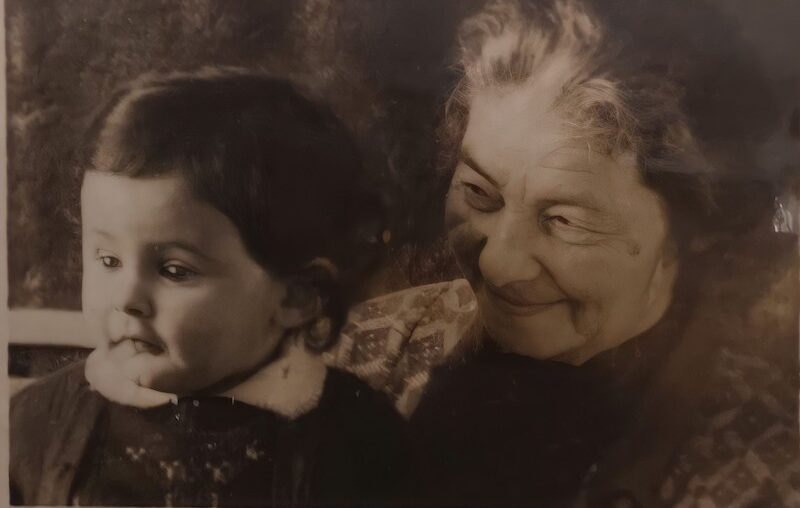“I’m not afraid of anyone or anything,” Grandma Rosa said. “Not because I’m brave, but because I’ve been afraid so much in my life that I’ve run out of strength to be afraid.”
My father, a zemstvo (land or district) doctor in Ovruch, was killed by the pogroms of Ataman Kozyr-Zyrka. He was killed while receiving patients in his clinic. His head was cut off. His white coat was all red with his blood. It was said that among the Ataman’s thugs were those whom daddy had treated. There was such a monster as Kozyr-Zyrka, the main murderer and robber in Ovruch, neighbouring our Korosten.
“I was eight months pregnant with your mother when, in February 1918 there was a pogrom in Korosten. It began with the robbery and murder of Jews at the Podolsk station. Then the pogrom spread throughout the city. We lived far away from the station, but the rumours reached us with a thunderbolt. They were looting.
Later, I learned that on 12 February, the small national emblem of the Ukrainian People’s Republic (UPR), a trident on a blue background, was approved and Korosten, for one day was recognised the capital of the UPR.
So, we were pursued on the occasion of the introduction of the emblem of Ukraine by the troops of the Central Rada. The holiday of Ukraine was marked by a Jewish pogrom. I, pregnant, fled, with four-year-old Leah, your aunt. Grandpa was at work, in a forest warehouse. I hid wherever I could, but how can you hide with a little daughter and a big belly? I ran from one Ukrainian neighbour to another but no one hid me. These were people with whom we were good neighbours.
When your mother was a year old in 1919, the Petliurovites arranged a new pogrom in Korosten, and in June of the same year we were crushed by Sokolovsky’s gang. We realised that we could not stay in Korosten. We fled to Kiev in July or August 1919 and in October, Denikin’s troops carried out a bloody pogrom where 300 Jews were killed.
When we returned to Kiev in 1944, I learned that our Ukrainian neighbours did not hide our Jewish acquaintances and relatives from the Germans and some gave them away to perish. The entire family of my brother Boris’s first wife was killed at Baby Yar. It was only a few days later that your grandfather and I met. He was hiding somewhere far away from people – from the beasts.
This beautiful Kiev became a trap for us. Your dad explores the work of Heinrich Heine, who said, “Plus je connais les hommes, plus j’aime les chiens.” :”The more I get to know people, the more I love dogs.” I agree: a dog will not betray. Immediately upon our return to Kiev, there were vicious rumours in Ukraine that there were no soldiers among the Jews. I was shocked and indignant: my nephew Mara died in 1941 fighting the Germans.
Your father and Leah were accused of ‘cosmopolitanism’, of hostility to Soviet power. For what? For loyalty to the Soviet Union? For talent and efficiency? They were accused of betraying their homeland by those who betrayed them to the pogroms and Nazis.
What is a Jew seeking? A home in which to live in peace, albeit in poverty, but safe. We did not have such a house in Korosten. We thought that the house in Kiev on Kreshchatik Street was our refuge but the Germans came and when we returned three years later, the house had been blown up.
In the new walls, where you were born, we lived quietly for four years, until it turned out that your aunt and your father were enemies of Soviet power. And now, I don’t know if I will find a home where I can rejoice, a house of joy, a native home.
I am considered a gloomy, pessimistic person. How many rays of light have shone upon me in life? Now my eldest daughter, a ‘cosmopolitan’, is being taken away from me and my youngest daughter will leave me for a ‘cosmopolitan’ husband. You are my only grandchild. How long will I receive this ray of light?”
I “shone” on Grandma Rosa for six years. She died of worry over the persecution of her eldest daughter and the tragedy that befell the family of her youngest daughter, whose husband, my father, had been repressed as a ‘foreign intelligence agent’. She died of heartache aged 64, having not found her house of joy, or her native home.

